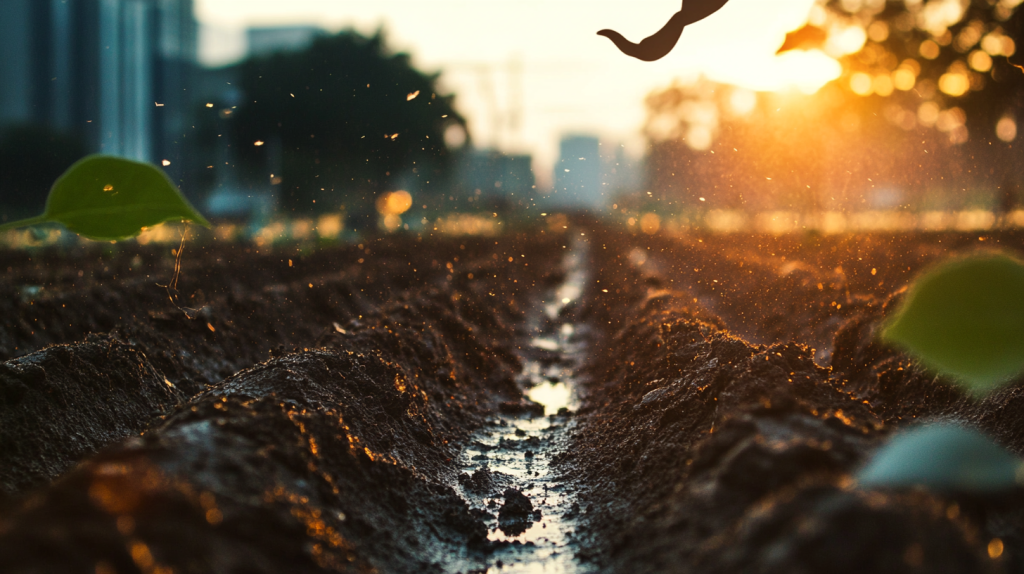To be honest, soil is not very elegant. Your backyard pictures hardly show this, and it most definitely doesn’t sparkle like a well cleaned patio. The truth is, though, that healthy soil is the unsung hero of every successful garden. Your plants are like toddlers without snacks without it: agitated, drooping, and ready to give up.
Consider Sarah, a suburban woman with fantastic ideas for a garden. She received sad, colorless foliage and marble-sized tomatoes instead of tomato plants that would make her Italian grandmother pleased. Who owns the guilt? bad soil condition. She turned her garden into an Instagram-worthy paradise, though, with a few small soil tweaks. You can, too, if Sarah can.
What then is the situation about the condition of soil? Consider your soil as a plant hotel. The meal is the nutrients; the soft mattress is the texture; the microorganisms are the friendly hotel personnel that maintain everything running. Should one of these elements be out of balance, your plants will die early, creating a depressing, barren landscape.
Commonly found in suburban backyards is compacted soil. Like jeans after Thanksgiving dinner, too much foot activity, over-mowing, and even garden gatherings where everyone insists on standing in the same spot will compact the soil. Texas retireee Tom learned this the hard way. His yard was somewhat rough, and the grass was more brown than green. With little lime treatment and aeration, his lawn changed from desert desolation to golf-course green according to a basic soil test, which revealed pH off-target.
How then would you start your path toward soil health? First of importance is testing. See it as a dirt health check-up. Although DIY soil test kits are cheap and easy to use, if your yard is more than a football field you might want to think about consulting a professional. An enthusiastic gardener, Anna was shocked to find her soil was so badly nitrogen-deficient her plants were not growing. Her plants came back with great force from a few bags of compost and some clever planting.
Speaking of compost, you are losing a gardening cheat code if you exclude organic matter from your soil. Compost feeds the soil, controls moisture, and maintains the happiness of helpful bacteria—like a vitamin-packed smoothie. Using the heap of banana peels and coffee grinds that has gathered in your kitchen also provides an excellent justification.
Still another underappreciated champion for soil quality? Mulcher. More than merely looks good and neat, mulch locks in moisture, fights weeds, and shields your soil from the intense summer heat. Last spring, Ben, a weekend warrior gardener, lay mulch over his neglected flower beds. His begonias were blooming a few weeks later, and when he looked over the fence his neighbor might have shed an envious tear.
Not least of all are fertilizers. But first, think about what your soil really needs before you start throwing them all around like confetti. Although they are useful, excess of fertilizers might do more damage than benefit. Rachel discovered this the hard way when her overly fertilized roses failed to bloom but grew enormous leaves. Her roses became the talk of the town once she started using a balanced organic fertilizer.
Another often recurring enemy in the suburban garden play is soil compaction. Your plants will discreetly protest when soil becomes too compacted as water and roots cannot move freely. Turned weekend gardener from an office worker, Carlos battled compacted soil with clever use of cover crops and careful aeration. His yard is now so verdant it might pass for a botanical garden.
One of the main components of soil condition is watering. Too little leaves your plants desiring oxygen; too much water kills them. Drip irrigation and other smart watering techniques help to maintain balance in your soil and health of your plants. Jennifer created a drip irrigation system after once drowning her tomato plants with well-meaning overwatering. Her water bill profited as well as her plants did.
Soil health is a lifelong endeavor rather than a one-time project. Every household should learn regular mulching, composting, soil testing, and smart watering. See it as your garden’s gym membership; it performs best when you show up regularly.
If all of this seems too much, relax. The good news is that changes in soil quality usually show fast and pleasing results. Test your soil first, then add compost, mulch your garden beds. Start small. Soon you will be like Sarah, contentedly standing in your lawn with softball-sized tomatoes and vibrant flowers.
Healthy soil is more than just beautiful plants; it’s about creating an environment in which your lawn appears lush, your weekends are spent lounging in a lovely outside space instead of fighting hardy weeds and uneven grass.
Take your shovel, roll up your sleeves, and get ready to learn the secrets of soil health. Future yourself and your garden will thank you.
